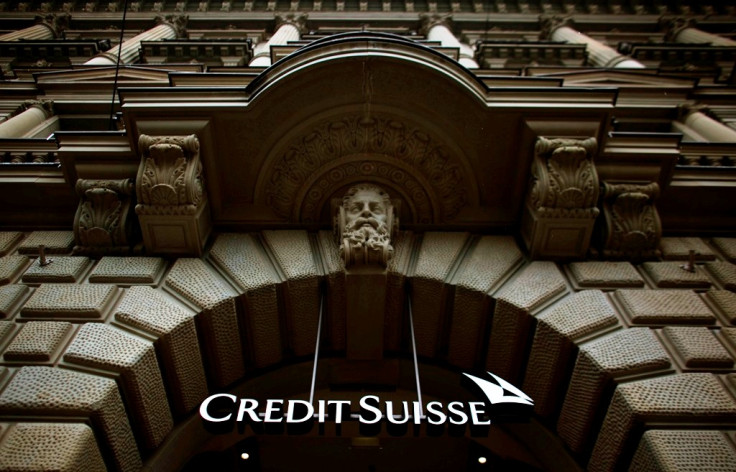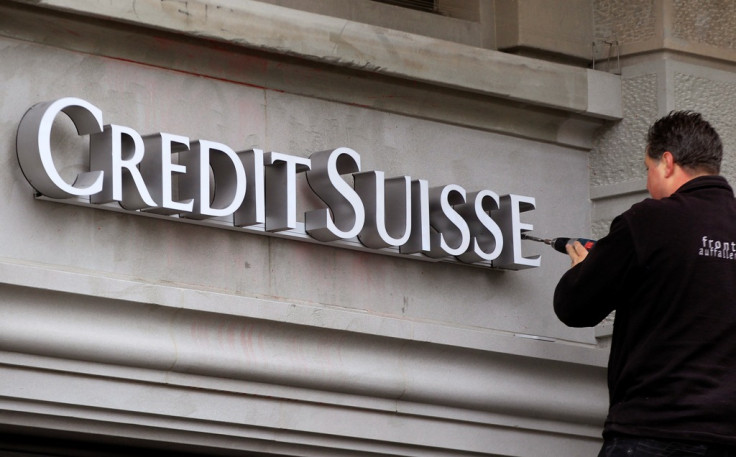Could Credit Suisse Alleged Tax Evasion Crimes Match James Bond Bankers of UBS?

The tax probe causing grief to Credit Suisse is demonstrating a break from legal precedent. Despite the case being compared to the UBS scandal, it seems to be courting a more costly and punitive outcome.
UBS eventually resolved claims that it systematically helped clients evade taxes in a $780m deferred prosecution agreement with US authorities, but Credit Suisse appears to be turning into a different kettle of fish.
It is reported to have set aside $2bn to avoid criminal prosecution as it tussles with authorities to resolve the issue.
Why should Credit Suisse face harsher sanctions? The allegations of helping wealthy US clients avoid taxes are the same as those that were levelled at UBS.
As a recent opinion piece in Forbes pointed out, Credit Suisse hosted less in terms of assets in US client accounts than UBS. At its peak, Credit Suisse had more than 22,000 American customers with Swiss accounts holding assets of roughly $10bn, according to a report by the US senate permanent subcommittee on investigation.
UBS was understood to have been hiding about $20bn worth of assets.
Unfortunately for Credit Suisse, the phrase "too big to jail" seems to have left the scent of blood in the noses of US prosecutors. Perhaps one too many deferred prosecution agreements have been bought by big banks attempting contrition.
IBTimes UK revisits some of the astonishing details which emerged from the UBS case.
UBS Revisited
UBS may have avoided criminal prosecution, but its unscrupulous line in wealth management has become an open secret thanks to the revelations of whistleblower Bradley Birkenfeld.
The disgruntled UBS banker was paid $104m for dishing the dirt on his employers - the largest-ever payout of its kind.
Details emerged of so-called "James Bond bankers" - supposedly high-level wealth managers who travelled to the US frequently using encrypted laptops and other counter-surveillance techniques to avoid possible detection by US authorities - in a scheme that concealed from the IRS about 20,000 wealthy US clients whose accounts were worth a total of $20bn.
Birkenfeld revealed that in 2004, 32 UBS bankers went to the US and held over 3,800 meetings with US clients to provide unlicensed and unregistered advice.
UBS sponsored exclusive events in the US and sent bankers to aggressively seek out and create new business at art openings and auctions, in glamorous places like Miami Beach.
Birkenfeld alleged that upper management encouraged private bankers to enable US clients to create offshore accounts held by sham and nominee corporations in tax haven jurisdictions.
UBS directed its clients to falsify IRS forms W-8 BEN to mislead IRS into believing that sham entities owned accounts, not the US client. And likewise UBS failed to issue "1099 forms" to clients to file with the IRS. The forms would have identified the true owners.
In addition, UBS bankers advised clients to hide cash and valuables in numbered safety deposit boxes, as well as purchase jewels, artworks, luxury items using funds in Swiss accounts while overseas. It recommended misrepresenting receipt of funds from Swiss bank accounts in the US as loans from the Swiss bank, and destroying all offshore banking records existing in the US.
Clients were also told to use Swiss bank credit cards that it was claimed could not be discovered by US authorities.
Smuggling
Birkenfeld explained how UBS sent a letter to its US clients who elected not to provide Form W-9, used to identify a taxpayer when payments are made to them, using the bank's status as Qualified Intermediary (QI) to protect the client's real identity. UBS also suggested ways around the regulation, such as excluding US securities from portfolios and for the beneficiary to hold them directly, or for a structure to be put in place between the foundation/trust and the bank which serves as an independent non-transparent owner, and submit documents to the QI to this effect.

Birkenfeld explained in detail how he used the methods to assist property tycoon Igor Olenicoff to file fake returns for his company Olen Properties and hide hundreds of millions of dollars from the IRS.
Birkenfeld even said he had purchased diamonds using money from Olenicoff's offshore account and smuggled them into the US in a toothpaste tube. Olenicoff was eventually forced to pay back $52m in taxes.
UBS also maintained relationships with Swiss and Liechtenstein businessmen who posed as owners and directors of entities. Two Swiss financial professionals who were named and shamed were Hansruedi Schumacher and Matthias Richenbach.
Both helped clients to conceal offshore accounts through a variety of means including prepared sham loans documents used to conceal repatriation of funds, providing cell phones and calling cards to allow untraceable communications with Swiss bankers and hand delivering cash to clients.
They also helped obtain offshore credit cards and falsified documents to make it look like clients' assets belonged to Swiss clients. They also falsified documents to disguise repatriated funds as inheritance from foreign citizens.
We should also remember that UBS did not come quietly. It refused disclosure and referred authorities to a parent company in Switzerland. At this point the legal conflict became a diplomatic one between two governments.
By February 2009 UBS had reached a $780m deferred prosecution agreement with US authorities. In August 2009, 4,450 names were disclosed to the IRS so that the US would withdraw the summons.
© Copyright IBTimes 2024. All rights reserved.






